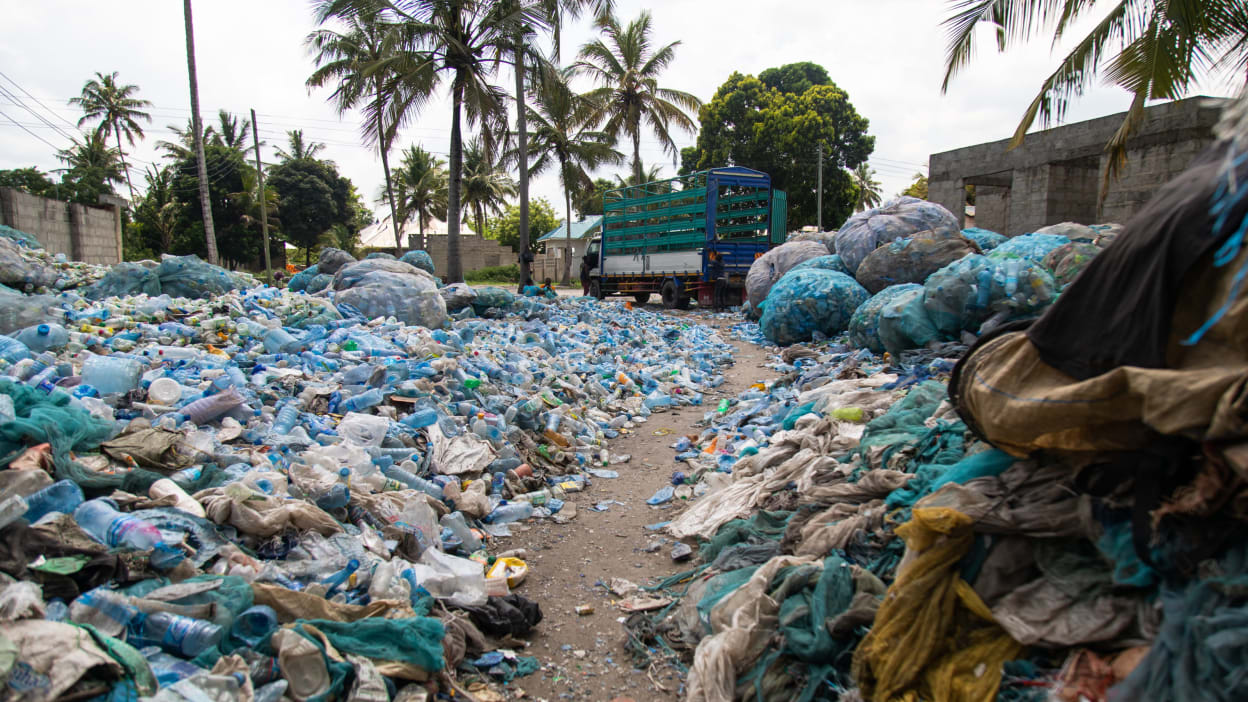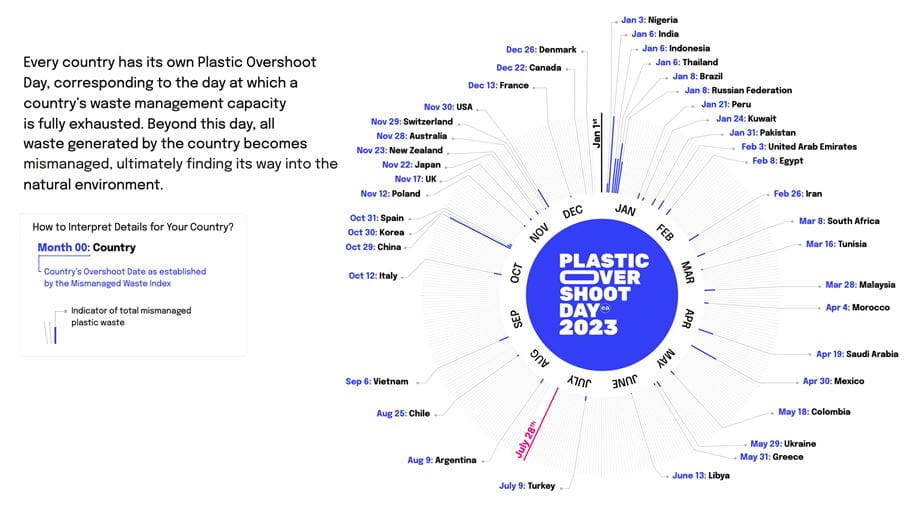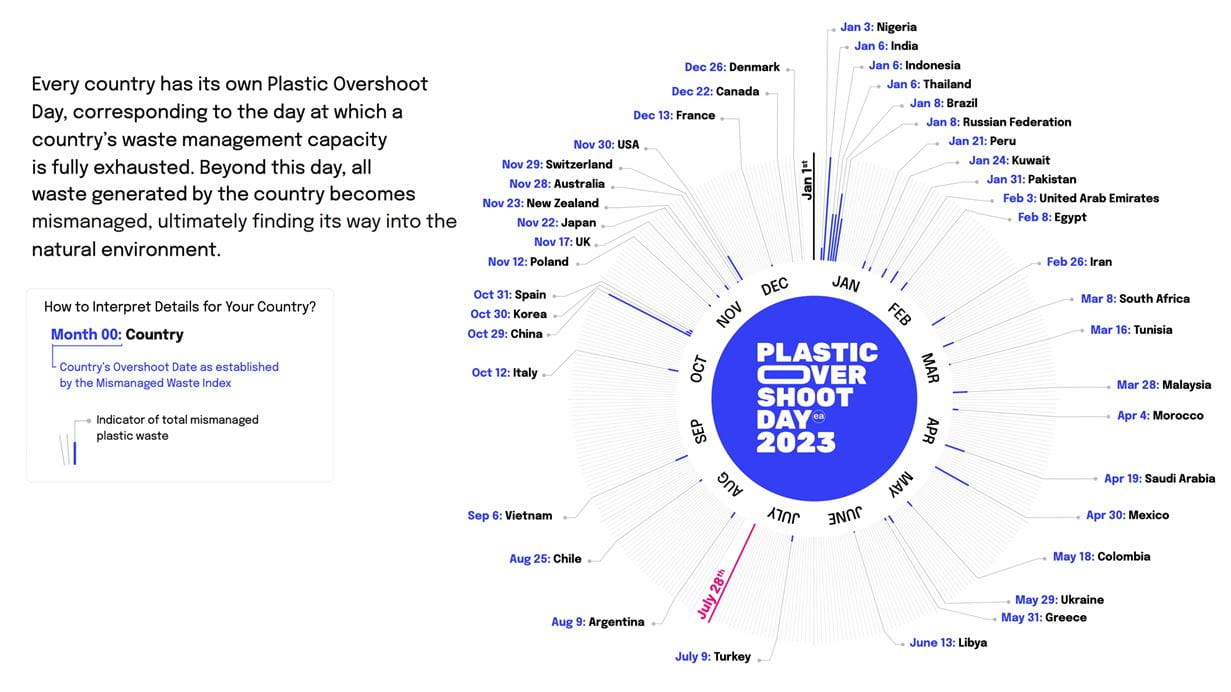As we begin 2024, we have hope: this could be the year that we see governments around the world agree on a global plan to tackle plastic pollution! There are two more rounds of UN global plastics treaty negotiations this year, and things still hang in the balance as fossil fuel and petrochemical companies push back against a strong and legally binding treaty. So, how can we remain focused and remind ourselves of the impact that plastic pollution is having globally?
This year, Tearfund is partnering with Earth Action to raise awareness of the impact plastic waste is having on those living in poverty around the world. Together, we’ll be marking Plastic Overshoot Day. But what exactly is it?
Plastic Overshoot Day explained
Plastic Overshoot Day marks the date when the amount of plastic waste produced across the world exceeds the capacity to safely manage it that year. You may have heard of Earth Overshoot Day, a similar concept, but this new one is focused on plastic. The results are shocking!
The numbers are still being crunched for 2024 but last year Plastic Overshoot Day was 28 July, meaning that each year we are producing vastly more plastic waste than we can safely manage. If you’ve marked Earth Overshoot Day in previous years, you might have noticed something concerning: the date comes earlier each year. This means each year we’re using more resources faster than ever before. The trend in our plastic waste generation is no different.
The data also allows us to look more closely at specific countries, each with their own levels of plastic production, consumption and waste infrastructure, and calculate their individual Plastic Overshoot Day. Alarmingly, many of the countries where Tearfund works, and where people are living in extreme poverty, pass their Plastic Overshoot Day in January.
You can find out more about how Plastic Overshoot Days are calculated and the dates for more countries on the website.
Why does it matter?
While you may live in a country that has good recycling systems to deal with your plastic waste, that’s not the case for most of the world. Last year, four in ten people in the world were living in a country that passed its Plastic Overshoot Day in the first two weeks of January [1], leaving the vast majority of the plastic waste ‘mismanaged’.
Mozambique passed this threshold on 1 January. Other countries with Plastic Overshoot Days in early January include: Uganda (2 January), Kenya (5 January) and Brazil (8 January).
Economically richer countries aren't immune to these problems. In 2023 the UK reached its own Plastic Overshoot Day on 17 November, 44 days before the end of the year. Similarly, countries such as the USA (30 November), Spain (31 October), Greece (31 May) and Japan (22 November) are unable to safely manage all of their plastic waste for the entire year.











.png)

